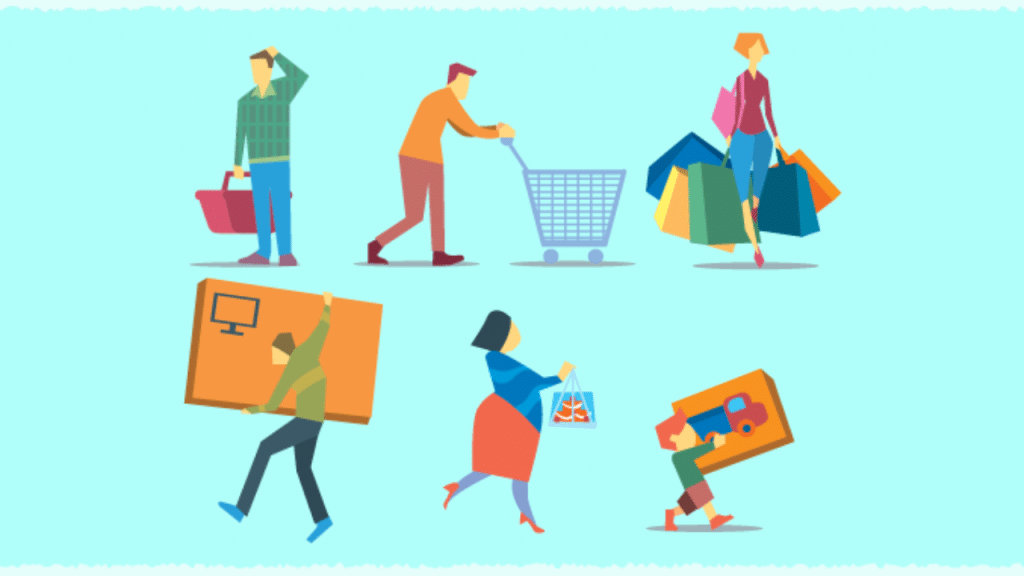Understanding the Psychology Behind Consumer Behavior
Emily Clarke July 18, 2025
The way consumers make purchasing decisions is influenced by a multitude of psychological and social factors. Lifestyle choices, in particular, have become a powerful force that shapes consumer behavior today. As trends evolve, companies must understand how these preferences impact the market and how they can tailor their products or services to meet consumer expectations. From sustainability to self-care, today’s consumers are more informed and more selective than ever. This article explores how lifestyle trends impact consumer behavior, why this understanding is crucial for businesses, and how psychological factors such as social influence and emotional attachment drive buying choices.

The Role of Lifestyle in Shaping Consumer Behavior
In recent years, lifestyle has shifted from just being a personal preference to a defining element in consumer behavior. Lifestyle refers to the way individuals live their lives, which includes their interests, activities, values, and opinions. As societal awareness increases and people strive for better well-being, businesses that tap into lifestyle trends gain an edge over their competitors.
One significant aspect of lifestyle is how it correlates with purchasing habits. People are no longer simply seeking products; they are searching for items that reflect their identity, values, and lifestyle. For example, consumers who prioritize sustainability may lean towards eco-friendly products, while those focused on health and wellness might opt for organic or fitness-related items.
1. The Rise of Sustainable Living
As awareness of environmental issues grows, more consumers are making eco-conscious choices. According to a report by Nielsen, 66% of global consumers are willing to spend more on sustainable brands (Nielsen, 2015). This trend has been particularly prominent in industries such as fashion, food, and home goods. Brands that embrace sustainability—whether through eco-friendly packaging, sustainable sourcing, or carbon offsetting—are attracting environmentally-conscious buyers.
Consumers now prefer to buy products that are not only functional but also align with their ethical and environmental beliefs. This shift reflects a significant psychological shift in the decision-making process. People are motivated by a deeper desire to make a positive impact, whether through reducing waste or supporting ethical companies. Businesses that cater to these values often build stronger emotional connections with their customers, enhancing brand loyalty.
2. Health and Wellness as a Lifestyle
Another dominant trend is the growing emphasis on health and wellness. According to the Global Wellness Institute (2018), the wellness industry is valued at over $4.2 trillion, with consumers investing in everything from fitness routines to mental health care. As a result, industries related to fitness equipment, dietary supplements, organic foods, and mental health apps are thriving.
The psychological influence of wellness is evident in consumer behavior. The desire for better health and fitness is tied to the need for control and self-improvement. Consumers seek products and services that will help them achieve their personal goals, whether it’s losing weight, building muscle, or reducing stress. Businesses in the wellness sector tap into this psychological drive by offering products that promise tangible results—often linked to lifestyle aspirations of self-care and self-improvement.
3. Social Influence and Peer Behavior
The role of social influence cannot be understated when analyzing consumer behavior. People often rely on social validation and peer behavior when making purchasing decisions. This can be seen in the rise of influencer marketing, where individuals are swayed by influencers they trust on platforms like Instagram and YouTube.
Social influence works on several psychological principles, including the bandwagon effect, where consumers buy products because they see others purchasing them. In today’s world of hyper-connectivity, trends can spread quickly through social media and peer recommendations, which leads to rapid shifts in consumer behavior. Understanding this dynamic helps businesses create campaigns that leverage social proof to drive sales.
Psychological Triggers in Consumer Purchasing Decisions
Beyond lifestyle trends, there are deeper psychological triggers that impact how and why consumers choose certain products. Understanding these psychological factors allows companies to create marketing strategies that resonate on a personal level, leading to higher conversion rates.
1. Emotional Attachment to Brands
One powerful psychological factor is the emotional attachment consumers feel toward certain brands. According to a study by the Harvard Business Review, emotionally connected customers are more than twice as valuable as highly satisfied customers. This emotional attachment arises when a brand aligns with a consumer’s values, aspirations, or sense of identity. For instance, consumers who feel a strong connection with a brand like Apple often remain loyal, even when faced with competitive products.
Building emotional connections requires more than just great products—it involves storytelling, shared values, and experiences that resonate with the consumer. Brands that create an emotional narrative around their products (e.g., promoting an inclusive message, empowering communities, or advocating for social change) are more likely to capture the consumer’s heart and wallet.
2. The Need for Instant Gratification
In the fast-paced world we live in, consumers increasingly demand instant gratification. This has become particularly evident in industries such as e-commerce, where features like one-click purchasing, same-day delivery, and easy returns are gaining popularity. The psychology of instant gratification stems from a desire for immediate pleasure and satisfaction, making consumers less willing to wait for a product.
The rise of services like Amazon Prime, which offers expedited delivery options, demonstrates how businesses are catering to this need. The convenience factor plays a critical role in shaping consumer behavior and influencing purchase decisions. Companies that provide faster service or create a frictionless buying process will likely gain favor among modern consumers.
3. Fear of Missing Out (FOMO)
FOMO, or the fear of missing out, is a powerful psychological force in consumer behavior. Limited-time offers, flash sales, and exclusivity are all marketing tactics that capitalize on this fear. When consumers perceive a product as scarce or fleeting, they are more likely to act quickly and purchase it, even if they did not originally intend to.
This tactic is especially effective in lifestyle-related purchases, such as fashion, beauty products, and experiences. When brands position products as rare or available for a limited time, they trigger a sense of urgency, prompting consumers to make a purchase decision faster than they might otherwise.
The Future of Consumer Behavior: How Businesses Can Adapt
As the psychology behind consumer behavior continues to evolve, businesses must stay attuned to new trends and adapt their strategies accordingly. Lifestyle changes, combined with powerful psychological triggers, mean that businesses cannot afford to remain static. Instead, they must continuously innovate and engage with their consumers on a deeper, more emotional level.
Businesses that leverage lifestyle trends and psychological insights will be in a better position to thrive in an increasingly competitive marketplace. Here are a few strategies businesses can implement:
- Personalization: Offering personalized experiences, whether through targeted advertising or product customization, helps businesses meet individual consumer needs.
- Transparency: Consumers today value honesty and transparency. Brands that openly share their values, practices, and business operations build trust and loyalty.
- Sustainability: Embracing eco-friendly practices and promoting sustainability will attract the growing number of environmentally-conscious consumers.
By understanding the psychology of consumer behavior, businesses can create compelling marketing strategies that not only capture attention but also foster long-term relationships with their customers.
References
- Nielsen. (2015). The Sustainability Imperative: New Insights on Consumer Expectations. Nielsen. Available at: https://www.nielsen.com (Accessed: 18 July 2025).
- Global Wellness Institute. (2018). The Global Wellness Economy: Looking Beyond COVID-19. Global Wellness Institute. Available at: https://globalwellnessinstitute.org (Accessed: 18 July 2025).
- Harvard Business Review. (2014). The Loyalty Ripple Effect. Harvard Business Review. Available at: https://hbr.org (Accessed: 18 July 2025).







